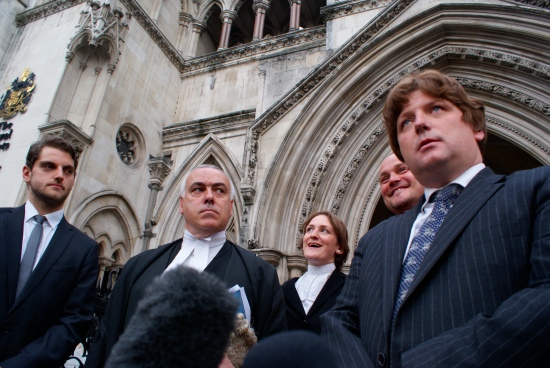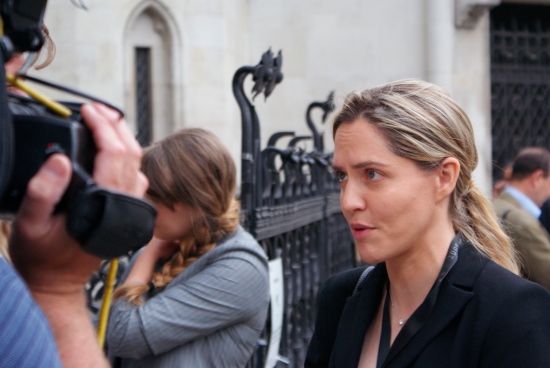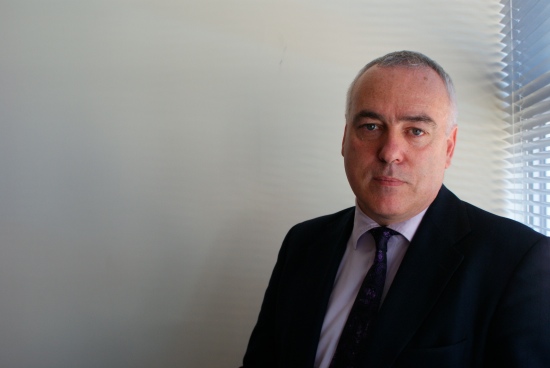The “Twitter joke” trial: why on earth did the DPP pursue this case?
Today’s judgment in the “Twitter joke” trial appeal is an important victory for Paul Chambers, who can now move forward with his life as a man of good character. The legal system has wronged him; but now at least that wrong has been put to an end, and corrected to some extent. It’s a victory too for his legal team and for his supporters, who are entitled to feel they’ve played a role in a significant blow for free expression, and against the sort of silly thinking that throws common sense out of the window where the internet is concerned.
The judgment leaves a couple of important questions unanswered, though.
First, while Paul Chambers’s lawyers (who’ve had a couple of days to study the judgment) feel it gives an important measure of clarity to tweeters – I’m less sure. The key to the court’s reasoning is at paragraph 30 of the judgment, where it concludes that a message which creates no fear is not caught by section 127 of the Communications Act 2003:
a message which cannot or is unlikely to be implemented may nevertheless create a sense of apprehension or fear in the person who receives or reads it. However unless it does so, it is difficult to see how it can sensibly be described as a message of a menacing character …
In short, a message which does not create fear or apprehension in those to whom it is communicated, or who may reasonably expected [sic] to see it, falls outside this provision, for the very simple reason that the message lacks menace.
There are two problems with this. First, it’s far from clear why the court has referred to those “who may reasonably be expected” to read a message like this. If the key is whether fear is actually produced, it follows that only those who do read it can have fear produced in them. The reference to people who may reasonably be expected to read a tweet causes confusion between the idea that what matters is how people react to an allegedly menacing message, and that idea that what matters is what the sender of the message ought to have thought might happen.
Much more importantly, though, if the key here was that Paul Chambers’s tweet put no one in fear – there was no evidence that it did so, something the court noted at paragraph 13 of the judgment – we must infer that the result might well have been different had there been evidence that anyone had felt apprehension, as the court put it, on reading the tweet. Nowhere in the judgment does the court provide any legal reasoning which suggests the outcome would have been the same had there been any such evidence. It’s true that, in paragraphs 31 to 33, the court considers the tweet in its context and appears to see the reaction of those who read it as only part of the picture. But it’s clear, ultimately, that the court decided Paul Chamber’s tweet was not menacing because there was no evidence that anyone felt fear; and that the Crown Court’s decision was set aside because it failed to give sufficient weight to this.
So I’m not sure this judgment produces clarity or safety for those who tweet jokes like the one Paul Chambers made. Yes, the courts will consider the full context or your tweet. And no doubt the CPS will be very wary of taking a prosecution like this again. But you cannot know before you tweet a joke whether it might – just might – make someone feel apprehensive. If you think it just conceivably might, and in the event someone says that it does, then you may well commit an offence under section 127. I would not relish having to argue that I was not guilty because the person who claimed to be apprehensive was being unreasonable.
The other key question, and one which both Paul Chambers’s solicitor David Allen Green and Louise Mensch MP raised in their interviews with me this morning, is why this case was pursued by the CPS – at least once the matter went to appeal. Green said the DPP’s decision to continue to fight the case was “disgraceful”; Ms Mensch said the CPS owes Paul Chambers an apology, and Parliament an explanation.
I’m not sure I agree with Louise Mensch about the DPP needing to explain himself to Parliament. I don’t doubt MPs have a legitimate interest in what happened in this case, and I don’t say they’d be wrong to summon Keir Starmer to explain his decisions. At the same time, though, the DPP and the Crown Prosecution Service must be, and must be seen to be, independent not only of government but of Parliament. The rule of law requires that independent prosecutors take independent decisions, without fear of or pressure from MPs. So while I agree with Louise Mensch’s criticism of the CPS, and while Keir Starmer should if need be account to those MPs who want to tell him he got this case wrong, he’s also entitled to tell them that he makes his own mistakes – not those politicians tell him to make.
The more important role for Parliament, if it wants to protect tweeters from CPS heavy-handedness, is to change the law so as to make a prosecution like this impossible in future, even in the sort of circumstances I considered earlier.
I do though agree that the CPS and the DPP made a shockingly bad decision in prosecuting this case, and certainly in continuing to fight it once the initial conviction was appealed. It’s not easy to see how this prosecution was in the public interest.
Crucial, though, is the “dog that didn’t bark”, or perhaps that barked at one stage but never bit. The initial case stated appeal back in February (there had to be a second appeal because the two judges who heard the first one couldn’t agree) was argued mainly on the basis of human rights. This time round, no doubt for strategic reasons, Paul Chambers’s lawyers chose not to focus on freedom of expression but on the plain English criminal law point about whether the tweet was menacing – the point which has ultimately won.
Nonetheless the article 10 Convention right to free expression is absolutely at the heart of this case, and in determining it on other legal grounds, the courts have evaded that important legal point. The CPS was bound to take article 10 into account in reaching its decision to prosecute, and can only lawfully have prosecuted if doing so was a proportionate interference with freedom of expression.
But a prosecution was obviously disproportionate from the beginning. No one was put in fear by this tweet; and no anxiety was caused at the airport. Even if in law the tweet had technically been “menacing”, the decision to prosecute affected Paul Chambers’s life in a severe way – involving first the threat and then the reality of a criminal record, which I understand lost him two jobs – and in a way which was entirely foreseeable. Of course that sort of thing happens in almost every criminal case. But in most cases, there is enough of a public interest in punishing the allegedly unlawful behaviour that the private interest affect is outweighed. Here, not only was there not such a public interest; it was obvious from the beginning that there was none.
The prosecution of Paul Chambers was unlawful, because it was a disproportionate interference with free speech, incompatible with the article 10 Convention right. How on earth can the DPP can have concluded otherwise?




